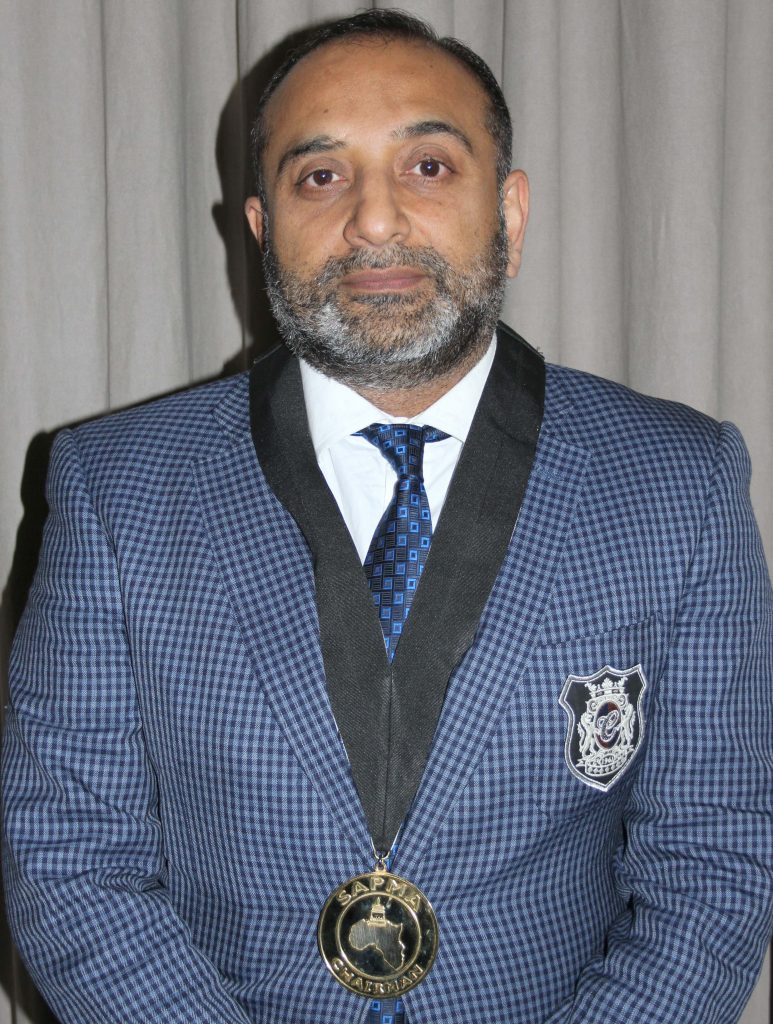
By Jan de Beer on behalf of SAPMA
The South African coatings sector urgently needs government assistance to counter growing challenges that could endanger its entire future, says Sanjeev Bhatt, who was recently re-elected as Chairperson of the SA Paint Manufacturing Association (SAPMA).
Bhatt says in addition to issues such as disruptions in electricity supply, crumbling infrastructure and inefficient management of parastatal entities that the coatings sector has to face, competition from other African countries is also major problem.

“The employment rates that some African governments, such as Egypt, grant their manufacturing sectors make production costs there much lower than in South Africa. If these cheaper imports from Africa are allowed to flood the SA market, the local coatings manufacturing sector will suffer serious economic consequences and ultimately cease production. We are hoping that relief will come as the Department of Trade Industry and Competition (DTIC) has confirmed that an African Free Trade Agreement has been ring-fenced for South Africa. This will mean that coatings and associated raw material imports from the likes of Egypt will not be allowed duty-free into South Africa.
“Due to the cost of electricity – and lack of constant supply – as well as the cost of labour in South Africa, we believe the government must also assist the coatings sector with rebates for electricity, and any other possible rebates to assist our sector. If not, many SAPMA members will consider moving to alternate countries to set up plants where labour costs are lower and electricity supply more assured,” Bhatt states.
He believes government and government departments need to work more closely with the coatings sector to ensure that current policies that are in place, or planned, are reconsidered or revised to help the sector to streamline operational processes. “Take permits required at ports of entry, for example. These are now required in writing for every single individual consignment brought into South Africa. As some coatings companies have consignments of the same chemicals and raw materials coming into port four or five times a year, the importers laboriously must repeat the same paper-based permit applications over and over again. We would like government departments to make these import permit processes more streamlined – and definitely place it online.
“Government departments generally should consult members of the coatings sector to better understand our manufacturing process as well as our supplier needs. SAPMA is hoping to meet with key government departments such as DTIC, International Trade Administration Commission (ITAC) and Invest SA (part of DTIC), as soon as possible to seek help in this regard,” he adds.
Bhatt says there is a worrying skills shortage in the coatings sector – especially at industrial chemist level. “SAPMA has never stopped training – we are just not doing it anymore via our SA Paint Industry Training Institute (SAPITI), which we have shut down. We are instead working closely with the British Coatings Federation (BCF) which has recently updated its training modules to make it more user-friendly and also cover more fields such as powder coatings, inks and printing in addition to just general coatings tuition. Through SAPMA locally, these BCF courses are available online which make them more accessible to students all over the country. The other benefit of using the BCF training material is that modules completed are recognised both locally and internationally through the BCF,” Bhatt comments.
More news
- CELEBRATING EXCELLENCE IN THE RESIDENTIAL PROPERTY SECTOR
- PART 4: GIBS PANEL DISCUSSES INTEMEDIATE CITIES ROLE IN AFRICA’S DEVELOPMENT
- EXPOSED AGGREGATE PAVERS COMPLEMENT NEW LIFESTYLE CENTRE
- GIBS PANEL EXPLORES ROLE OF INTERMEDIATE CITIES IN SA’S DEVELOPMENT PART 3
- CITI-CON’S CONCRETE KNOWLEDGE SUCCESSFULLY DEPLOYED ON NEW LANDMARK DEVELOPMENT

